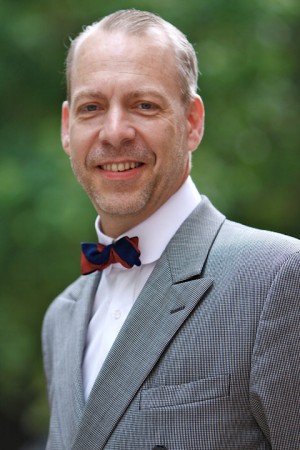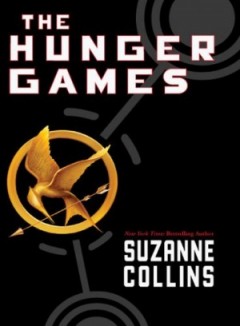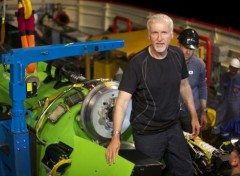In the interest of full disclosure, here are the books we received in March.
 God's War Kameron Hurley Night Shade Books |  Infidel Kameron Hurley Night Shade Books |  The Chronicles of Silverwolf: The Dawning of a Hero Eric Fox |

In the interest of full disclosure, here are the books we received in March.
 God's War Kameron Hurley Night Shade Books |  Infidel Kameron Hurley Night Shade Books |  The Chronicles of Silverwolf: The Dawning of a Hero Eric Fox |
Help Promote Prometheus Unbound by Sharing this Post


The latest craze to seize the literary world has been transformed, according to the law of Hollywood, into cinema. The Hunger Games, based on the novel by Suzanne Collins, is helmed by Gary Ross and co-written by the author herself. Targeting a younger crowd, the movie yet boasts enough maturity and craftsmanship to appeal to other demographics. I continue to await the next science fiction masterpiece, but if the interlude between masterpieces had more movies of this caliber, I would gripe a good deal less.
In the world of the story, an Empire has put down a rebellion by thirteen districts. The thirteenth district was destroyed and the other twelve must, each year, supply a male and female between the ages of 12 and 18 to participate in the Hunger Games. The 24 participants train for a few weeks before competing in a winner-take-all gladiatorial contest that leaves only one alive. Interspersed in their training are interviews with the media, banquets, and chances to impress viewers and thereby win sponsors who can assist the contenders during the competition.
Katniss Everdeen (Jennifer Lawrence) is a young girl in district twelve. She hunts for food in forbidden territory but is permitted to do so because she sells much of her catch to the guards (the first in a series of welcome demonstrations of governmental corruption). When her younger sister’s name is pulled as the female representative for the Games, Katniss demands to go as a volunteer in her stead.
Help Promote Prometheus Unbound by Sharing this Post
in Articles, Featured Posts, Film, Novels, Science Fiction, Statism


Whatever good you have heard about The Hunger Games, the reality is more spectacular. Not only is this the literary phenom of our time, but the movie that created near pandemonium for a week from its opening is a lasting contribution to art and to the understanding of our world. It’s more real than we know.
In the story, a totalitarian and centralized state — it seems to be some kind of unelected autocracy — keeps a tight grip on its colonies to prevent a repeat of the rebellion that occurred some 75 years ago. They do this through the forced imposition of material deprivation, by unrelenting propaganda about the evil of disobedience to the interests of the nation-state and with “Hunger Games” as annual entertainment.
In this national drama and sport, and as a continuing penance for past sedition, the central state randomly selects two teens from each of the 12 districts and puts them into a fight-to-the-death match in the woods, one watched like a reality show by every resident. The districts are supposed to cheer for their representatives and hope that one of their selected teens will be the one person who prevails.
So amidst dazzling pageantry, media glitz and public hysteria, these 24 kids — who would otherwise be living normal lives — are sent to kill each other without mercy in a bloody zero-sum game. They are first transported to the opulent capitol city and wined, dined, and trained. Then the games begin.
At the very outset, many are killed on the spot in the struggle to grab weapons from a stockpile. From there, coalitions form among the groups, however temporary they may be. Everyone knows there can only be one winner in the end, but alliances — formed on the basis of class, race, personality, etc. — can provide a temporary level of protection.
Watching all this take place is harrowing to say the least, but the public in the movie does watch as a type of reality television. This is the ultimate dog-eat-dog setting, in which life is “solitary, poor, nasty, brutish, and short,” in the words of Thomas Hobbes. But it is also part of a game the kids are forced to play. This is not a state of nature. In real life, they wouldn’t have the need to kill or be killed. They wouldn’t see each other as enemies. They wouldn’t form into evolving factions for self-protection.
Help Promote Prometheus Unbound by Sharing this Post
in Featured Posts, Interviews, IP, Non-Fiction, Prose, Science Fiction

Jeffrey Tucker is the publisher and executive editor of . He is the author, most recently, of Bourbon for Breakfast: Living Outside the Statist Quo (2010) and It’s a Jetsons World: Private Miracles and Public Crimes (2011). The former editorial vice president of the Ludwig Von Mises Institute, he is an adjunct scholar with the Mackinac Center for Public Policy, a research fellow with the Acton Institute, and a faculty member of Acton University.
Allen Mendenhall: Jeff, this interview is exciting for me. It’s something of a reversal of the interview that we did together in January 2011. This time, I’m interviewing you. I’d like to start off by asking about your two recent books, Bourbon for Breakfast and It’s a Jetsons World. Tell the readers of this site a little about both books.
Jeffrey Tucker: Both books cover the unconventional side of private life as governed by the market and human volition. I guess you could say that this is my beat. I’m interested in the myriad ways in which the government’s central plan — and there is such a thing — has distorted and changed our lives, and also interested in the ways we can get around this plan and still live fulfilling lives. I take it as a given that everything that government does is either useless or destructive or both. The government does a tremendous number of things, so this is a huge area. Bourbon is more focused on the rottenness of the state and its harm, while Jetsons is more the marvelous things that markets do for us. Neither subject gets the attention they deserve.
AM: These books are available for free online in PDF and EPUB formats. Explain why you’ve chosen to make your work freely and widely available.
JT: Every writer wants to be read, so it only makes sense for all writers to post their material. Of course publishers tend to intervene here with promises of royalties in exchange for which you become their slave for the rest of your life plus 70 years (that’s when they dance on your grave). This is the essence of copyright. It is a bad deal for writers. Those who go along with it these days nearly always regret it later. If they actually earn royalties — and very few actually do — it is likely they would have earned more had the material not been withheld pending payment. The bestselling books of 2012 — the Hunger Games series — are posted by pirates everywhere, even against publisher wishes. But, you know, this is starting to change. Publishers are gradually seeing the point to posting material online. Sadly, they aren’t budging on the copyright issue, which is really pathetic. No libertarian should ever publish anything with any institution that is not willing to embrace a very liberal policy on reprints, and one that is likely enforceable such as Creative Commons — Attribution. Meanwhile, the government is using copyright, a phony form of property rights, to step up its despotic control over the digital age. The situation is extremely dangerous. One hundred years from now, they will be laughing at our times and poking fun at how the anachronistic state tried its best to thwart progress.
AM: You strike me as an optimist. Is that true?
Help Promote Prometheus Unbound by Sharing this Post
in Audiobooks, Featured Posts, Novels, Reviews, Science Fiction

I started the 11-hour Audible.com audiobook of The Hunger Games, by all-time bestselling Kindle author Suzanne Collins, in the evening. Eight hours later, I finally summoned one small spark of the courage of its heroine, 16-year-old black-market hunter-gatherer Katniss Everdeen, and touched a half-frozen, bloody, mud-encrusted finger to my iPhone’s STOP button even though three hours remained. As soon as I awoke a few hours later, I checked the condition of my burns and cuts and was surprised to find that they had healed. No, that wasn’t it; those things had only happened to characters in a book.
The Hunger Games film-release buzz intrigued me enough to dive into the book before visiting the theater. I had previously only heard superficial mentions of a dark, brutal story and did not become interested until some of the advance film reviews suggested that the story might actually convey significant and thoughtful content in an action package. It does.
This is a fresh addition to the list of classic dystopian dramatic critiques of the state that work by showing what the state does to society and human beings in a magnified, allegorical form. The author’s choice of a close first-person voice and sympathetic main character transform the central state’s artificial battle game show into a very human landscape in the context of a post-apocalyptic North America. The nature of zero-sum game-making is revealed through a specific set of living eyes.
The Hunger Games are staged annually as an ongoing punishment for a failed rebellion against the center decades earlier. The center wants the 12 peripheral districts, each also kept isolated from the others, to always remember their subservient status and the futility of resistance. Twenty-four “tributes” between the ages of 12 and 18, one male and one female from each of the districts are selected by a lottery called “the reaping” and travel by luxury express train to the glorious and wealthy “Capitol” to compete in a gladiatorial survival reality TV marathon that the entire nation watches like the Olympics.
Instead of winning on points or being voted off, contestants are to live off the land and kill each other any way they can in a struggle to be the last one alive as days of combat, evasion, and nature survival stretch out before the cameras. Only one can live, winning a year of bonus rations for their home district and personal survival, a generous lifetime income, and celebrity status. Those selected are trained, groomed, costumed, and interviewed before the games. Viewer betting is intense, and sponsors can, at great expense, send players they favor well-timed small gift aid items by precision micro-parachute drop during the games. This makes it helpful for players to make a good impression on potential sponsors before the games even begin, incentivizing them to participate in staged pre-game pageantry.
Katniss has been a part-time hunter and gatherer from early childhood. In a starving coal district, she became the sole provider for her unstable mother and younger sister after her father’s death in a mine explosion. She supports her family by recalling her father’s lessons and becoming an illegal hunter in the forest outside the dilapidated District-12 security fence. Officials avoid arresting or shooting her or Gale, her hunting partner, because the officials themselves enjoy buying wild game, vegetables, berries, and herbal products from them.
Help Promote Prometheus Unbound by Sharing this Post
in Articles, Film, IP, Novels, Science Fiction


So you want to see Hunger Games when it comes out on Thursday at midnight? It’s not likely that you will get the chance. Tickets in my community have been sold out for weeks. In fact, the first 10 showings of the film are sold out. This disappoints me greatly because it is one of the few teen flicks I’ve really wanted to see.
The whole phenomenon seems set to make the Harry Potter hysteria and the Twilight mania seem like warm-up acts. Ask around among teens, and you will hear this confirmed. This is a true example of mass frenzy. Actually, the whole thing seems like a modern “madness of crowds.” It’s “pandemonium,” as People magazine put it.
Both the plot line and the marketing genius have lessons for our time.
Based on a book by Suzanne Collins that came out in 2008, the film tells the story of an impoverished, totalitarian society in which rebellion among the subjects is punished by the creation of a killing game for mass entertainment. A teenage girl is put in the position to kill or be killed, but she cleverly plots to stand up to the regime by cooperating with her opponent. Together, they win the hearts of the crowd and bring the regime to its knees.
In other words, it is a story about personal freedom against a powerful state, a tale of courage and defiance in the face of power. The reviews by actual readers (versus professional critics) are over the top. It’s Amazon’s No. 1, and it has 4,000 reviews and counting. This is a phenom.
Aside from the plot line, there is something contemporary about the theme of sheer deprivation and survival. It sums up the way young people are looking at the opportunities they are being presented in these times. We aren’t playing hunger games yet, but when an entire generation is pretty sure that it will not fare as well as its parents’ generation, that’s not good. Life seems like the zero-sum game posited in the film.
Help Promote Prometheus Unbound by Sharing this Post
in Film, News, Science Fact, Science Fiction, TV

io9 has the story about Cameron’s complaint and his endeavor to spearhead a return to “Challenger Deep, the deepest known point in all the world’s oceans.”
I just want to highlight a pleasantly surprising remark from Cameron:
“I think we’ve got to do better,” he told Nature News. “If it means getting private individuals together with institutions and bypassing the whole government paradigm, that’s fine. Maybe that’s what we need to do.”
Please, by all means, do.
Help Promote Prometheus Unbound by Sharing this Post